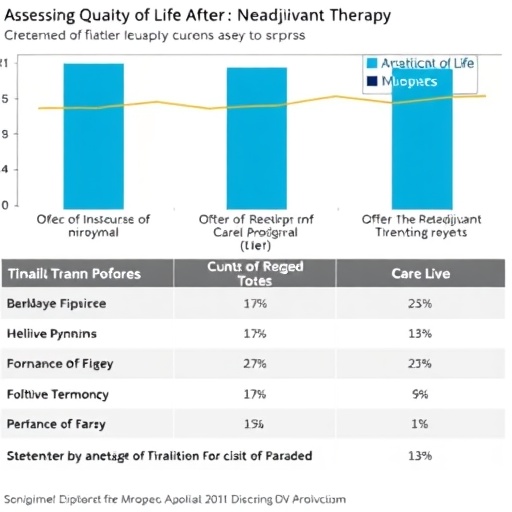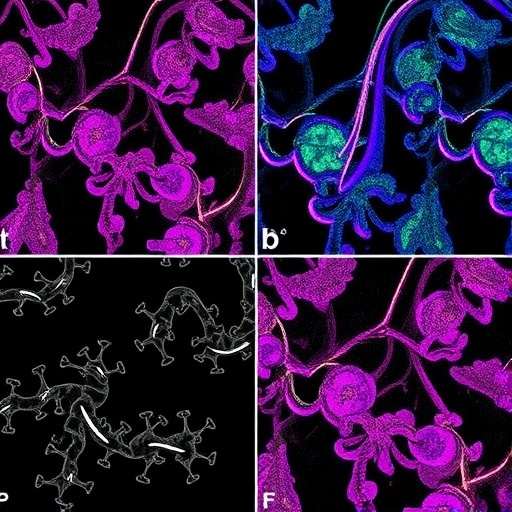PROTECT YOUR DNA WITH QUANTUM TECHNOLOGY
Orgo-Life the new way to the future Advertising by AdpathwayIn the realm of healthcare, the continuous evolution of nursing roles is imperative for improving patient outcomes and enhancing healthcare systems. A study led by Wright, M., Kvist, T., Mikkonen, S., and colleagues explores a critical component of this evolution—the continuing education of clinical nurse specialists (CNS) through an innovative pilot program. This research breaks new ground in understanding how structured educational interventions can optimize nursing practices, foster professional growth, and ultimately benefit patients.
The background context for this research is the growing acknowledgment that the healthcare landscape is becoming more complex, necessitating nurses to acquire new competencies and knowledge. Nurses are frequently the first point of contact for patients and play a crucial role in care delivery. Consequently, their educational needs must be met with high-quality, evidence-based training. The pilot program examined in this study aims to equip clinical nurse specialists with the essential skills and knowledge required to navigate modern healthcare demands.
The study utilized an intervention model that involved three repeated measures to evaluate the effectiveness of the CNS continuing education program. By implementing a longitudinal approach, the researchers sought to capture the nuanced impacts of educational interventions over time, providing a more comprehensive understanding of their efficacy. This methodology allows for a thorough evaluation of not only immediate learning outcomes but also the enduring effects on nursing practice and patient care.
Results indicated that participation in the continuing education program significantly enriched the participants’ clinical competencies, confidence, and overall job satisfaction. Participants reported enhanced skills in critical thinking, decision-making, and patient communication—essential attributes for a clinical nurse specialist. This improvement underscores the necessity of ongoing professional development in nursing, particularly for those in specialized roles who face complex clinical situations.
Furthermore, the pilot program benefited from an integrative curriculum that addressed various dimensions of nursing knowledge. It combined theoretical components with hands-on experiences, ensuring that participants not only learned in a classroom environment but also applied their knowledge in real-world clinical situations. This dual approach has been recognized as a best practice in nursing education, promoting deeper learning and retention of information.
Interestingly, feedback from the participants highlighted the transformative nature of the training’s collaborative elements. The program encouraged networking and peer interactions, ultimately fostering a community of practice among clinical nurse specialists. Nurses, often siloed in their respective roles, found immense value in shared learning experiences, leading to collective enhancement in nursing practice and patient care approaches.
Moreover, the program addressed various contemporary challenges faced by the healthcare sector, including the management of chronic diseases, patient-centered care, and the integration of technology in nursing practices. By tailoring the curriculum to the specific demands of the healthcare environment, the researchers ensured that participants were well-prepared to meet the evolving needs of their patients and institutions.
On a broader scale, the findings of this study accentuate the necessity of institutional support for continuing education in nursing. Healthcare organizations are encouraged to invest in the professional development of their nursing staff as a strategic initiative for improving care quality. The leadership in these organizations must recognize that the return on investment in nursing education is reflected in enhanced patient outcomes, reduced error rates, and improved overall organizational performance.
This research spurs a vital conversation about policy implications for nursing education. As healthcare systems transition towards more complex and dynamic models of care, aligning educational programs with these realities is essential. Regulatory bodies and educational institutions must collaborate to create curricula that not only fulfill academic requirements but also prepare nurses for the challenges they will face in practice.
Additionally, the importance of evaluating educational programs cannot be overstated. The use of longitudinal studies like this one provides critical insights into the effectiveness of educational interventions over time. By establishing robust evaluation mechanisms, healthcare organizations can continuously improve these programs, ensuring they remain relevant and impactful in the face of ongoing changes in the healthcare landscape.
With the insights garnered from this study, there is no doubt that the positive outcomes associated with the CNS continuing education pilot program can serve as a model for other nursing disciplines. Expanding this approach could lead to a ripple effect throughout various nursing roles, positively influencing the overall quality of care delivered in healthcare systems.
In conclusion, this groundbreaking study illuminates the profound impact that educational interventions can have on clinical nurse specialists. The results signify a decisive step towards bridging the gap between nursing education and practice, ultimately enhancing patient care outcomes. As the healthcare sector evolves, the need for innovative and evidence-based educational formats will become increasingly paramount. It is incumbent upon stakeholders to foster these advancements for the betterment of nursing practice and patient care.
Subject of Research: Clinical nurse specialist continuing education
Article Title: Outcome evaluation of a clinical nurse specialist continuing education pilot program: an intervention study with three repeated measures.
Article References:
Wright, M., Kvist, T., Mikkonen, S. et al. Outcome evaluation of a clinical nurse specialist continuing education pilot program: an intervention study with three repeated measures.
BMC Nurs 24, 1323 (2025). https://doi.org/10.1186/s12912-025-03623-7
Image Credits: AI Generated
DOI: 10.1186/s12912-025-03623-7
Keywords: Continuing education, clinical nurse specialists, intervention study, nursing practice, patient care outcomes
Tags: clinical nurse specialists trainingenhancing nursing roles in healthcareevidence-based nursing traininghealthcare professional developmentimpact of educational interventions in nursinginnovative approaches in nursing educationlongitudinal evaluation of nursing programsmodern healthcare competencies for nursesnurse specialists continuing educationoptimizing nursing practicespatient outcomes and nursing educationpilot program for nurse education


 12 hours ago
10
12 hours ago
10





















 English (US) ·
English (US) ·  French (CA) ·
French (CA) ·